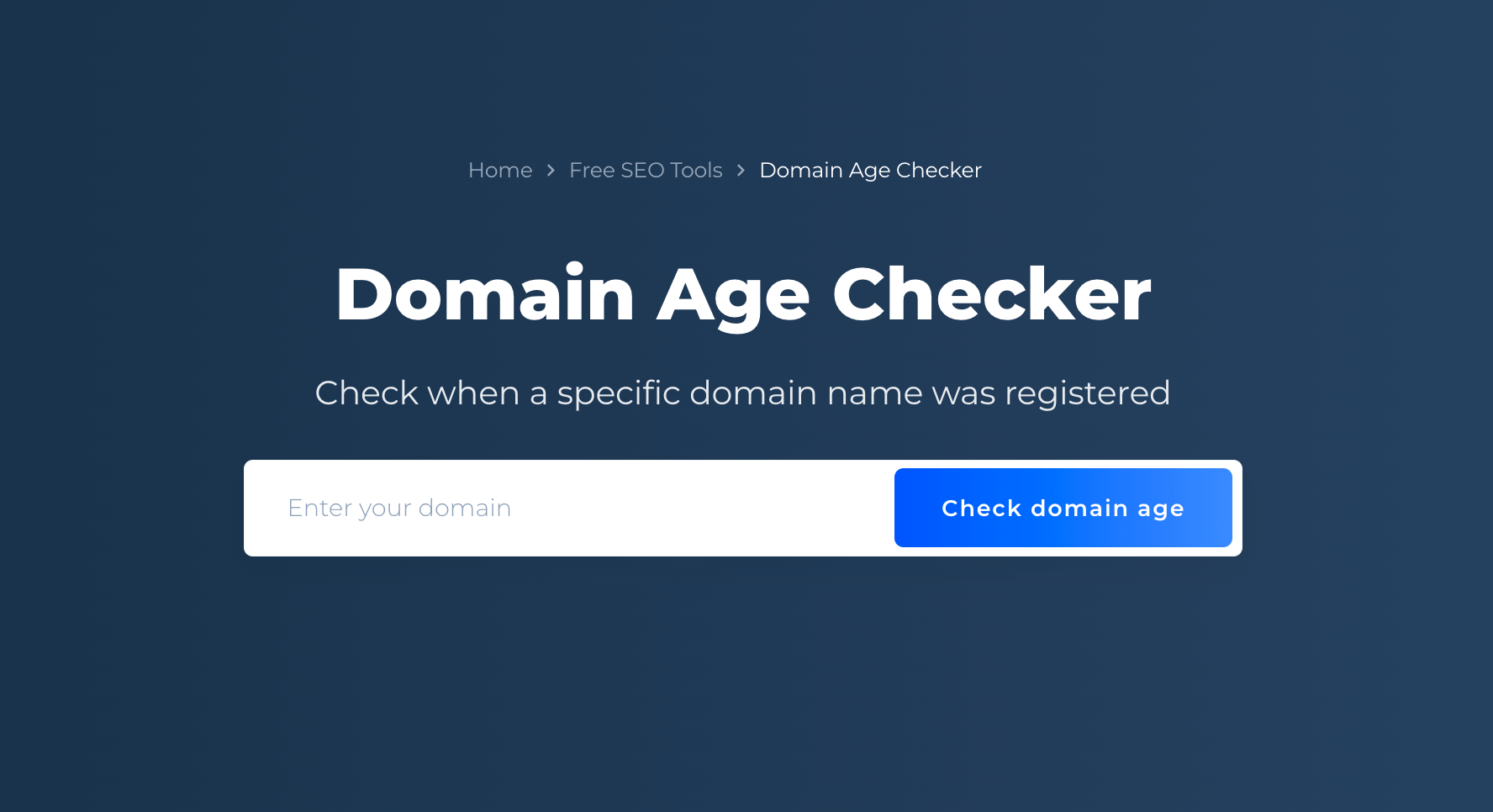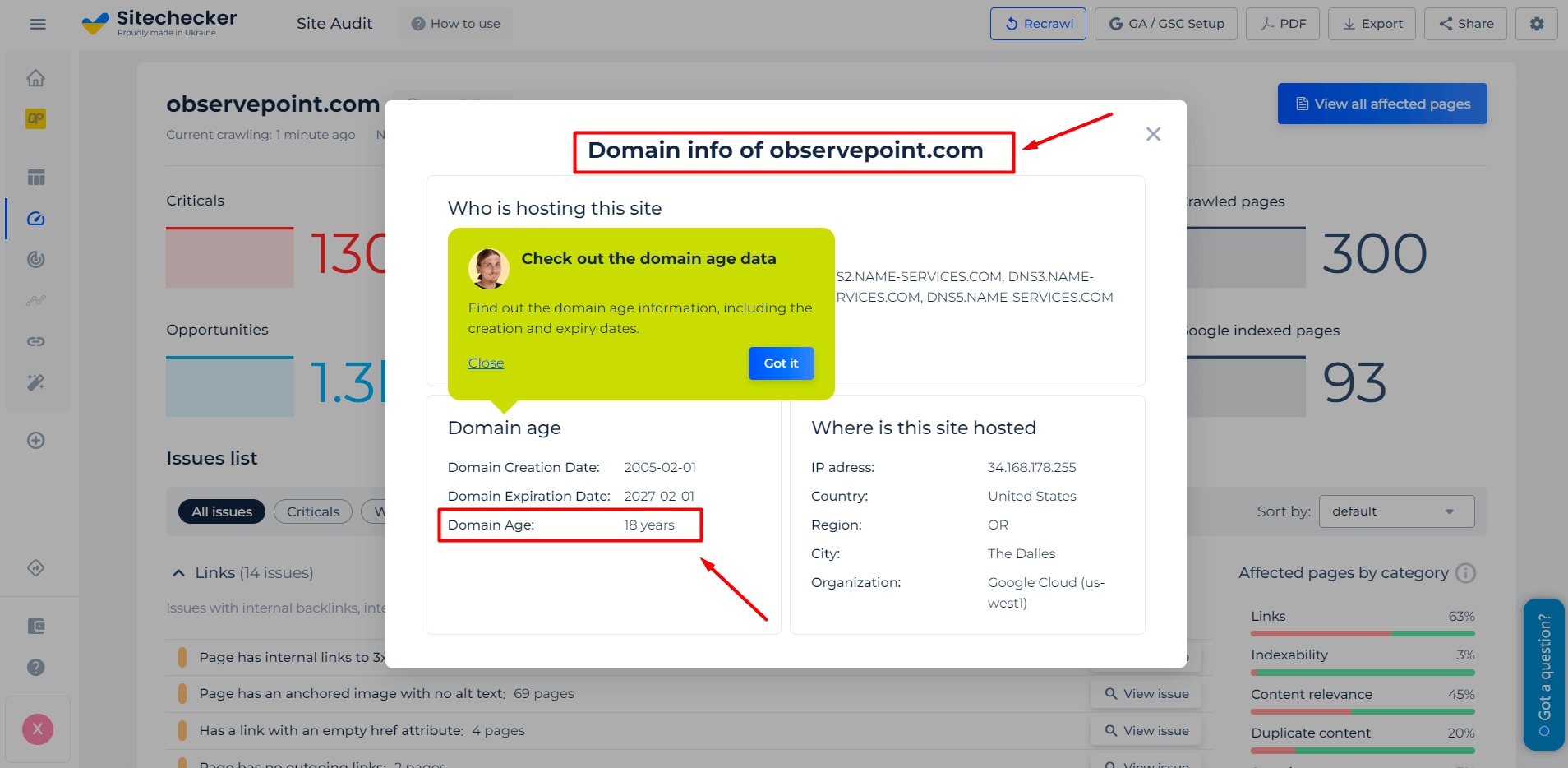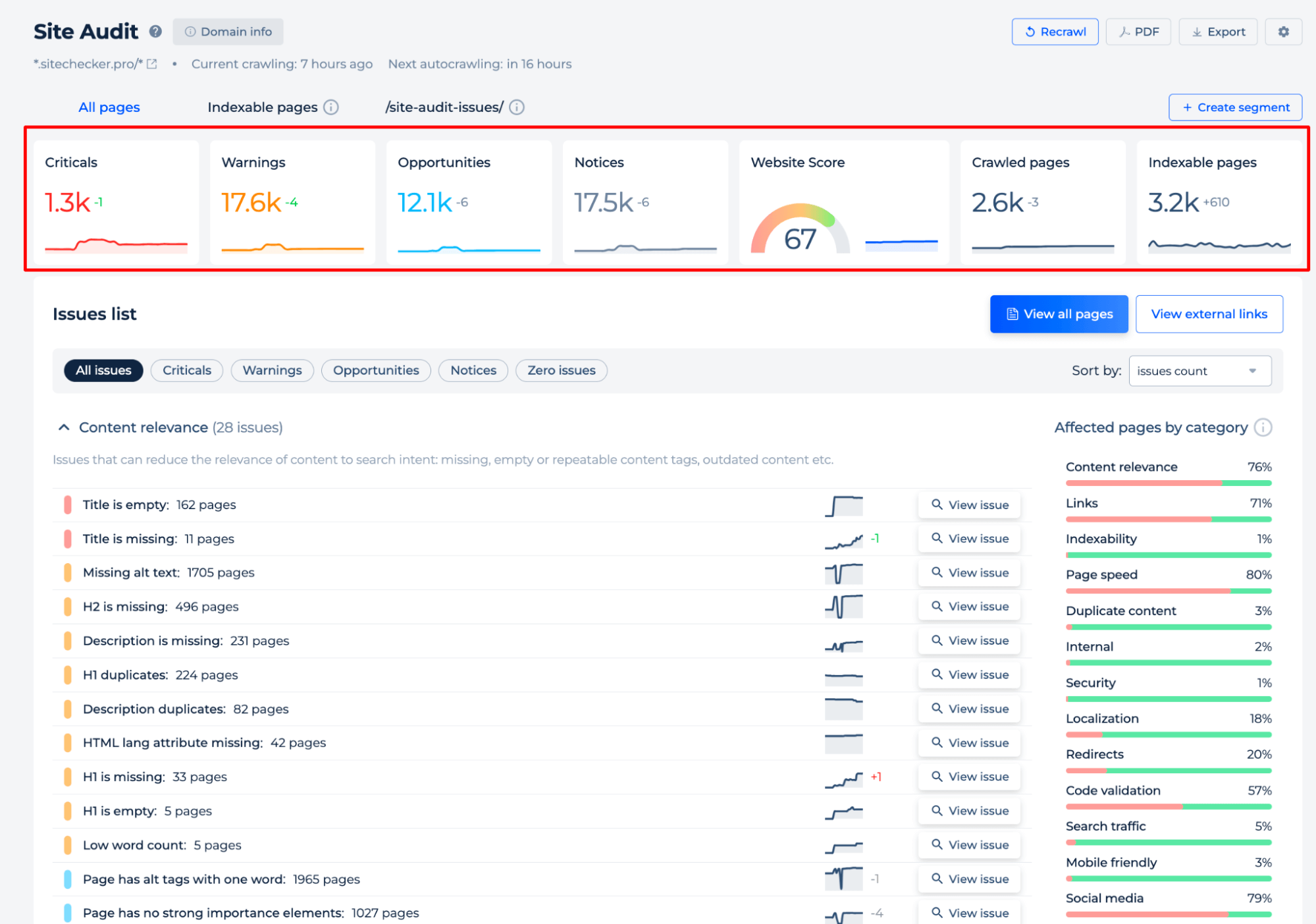What is the Domain Age Checker?
The Website Age Checker by Sitechecker is an online SEO tool designed to determine the age of a domain, which is considered an important factor in SEO and domain authority. Websites 10 years old or older are generally perceived to have stronger authority and SEO value. Before purchasing a domain, it’s recommended to check how old is this website, its reputation, and its spam history to ensure it aligns with your needs.
How the tool can assist you?
Monitoring Your Sites’ Ages: simplifies keeping track of the age of your websites, providing up-to-date information effortlessly.
Assessing Potential Purchases: offers comprehensive details about a site’s age, hosting, blacklist status, and a full audit of all pages, aiding in making informed decisions before purchasing.
Evaluating Newly Acquired Sites for Promotion: to effectively plan a promotion strategy for a new site, understanding its age and technical condition is crucial. This tool quickly furnishes accurate data on the site’s age and potential domain authority.
Key features of the tool
Unified Dashboard: offers a centralized view for monitoring SEO metrics, displaying real-time data on website health, performance, and rankings. It allows customizable widgets to prioritize essential data, streamlining SEO management from a single interface.
User-friendly Interface: designed for ease of use, accommodating both beginners and experts. It simplifies navigation through SEO tasks with clear instructions and visual aids, reducing the learning curve and enhancing efficiency.
Complete SEO Toolset: covering all aspects of SEO optimization, including keyword research, site audits, backlink analysis, and on-page recommendations. It offers a holistic approach to improving website performance through an integrated suite of tools.
How to Use the Tool
To check the site age, simply initiate the check. It only takes a moment, and in addition to the website lifespan, you will receive valuable information that helps you learn more about the web resource.
Step 1: Insert the domain address

Step 2: Results analysis
After performing a crawl, you will be able to access the information data, which includes the age, its creation date, and its expiration date.

Additional Features
If you are checking your website or the web resource of the project you plan to invest in financially, we have great opportunities for you. After completing the site crawling process, a detailed website audit report will be provided to help pinpoint any existing issues and understand the website’s SEO technical condition. The report will include helpful recommendations for resolving identified problems. Additionally, the type or category of the issue (e.g. Links, Indexability, Content Relevance) can be determined to focus on those that are most important for improving overall website performance. This will enable users to effectively address any existing concerns and ensure optimal success moving forward.

To further safeguard your investment, Domain Expiration Monitoring ensures you stay ahead of critical domain renewal deadlines. This feature alerts you when your domain is nearing expiration, preventing unintentional lapses that could impact SEO and web traffic, and allowing you to maintain full control over your domain assets.
Final Idea
The Free Domain Age Checker is the tool for determining a domain’s age, a key factor in assessing SEO and domain authority. It’s especially useful for those considering purchasing, as it provides insights into the sites history, including its age, reputation, and any past issues with spam. This tool not only calculates the age from its registration date but also aids in making informed decisions by comparing potential websites and their SEO advantages. With features like a Unified Dashboard, a User-friendly Interface, and a Complete SEO toolset, streamlines the process of website analysis and website optimization. Additionally, it offers detailed audit reports for further analysis and improvement of a website’s SEO and technical health.







